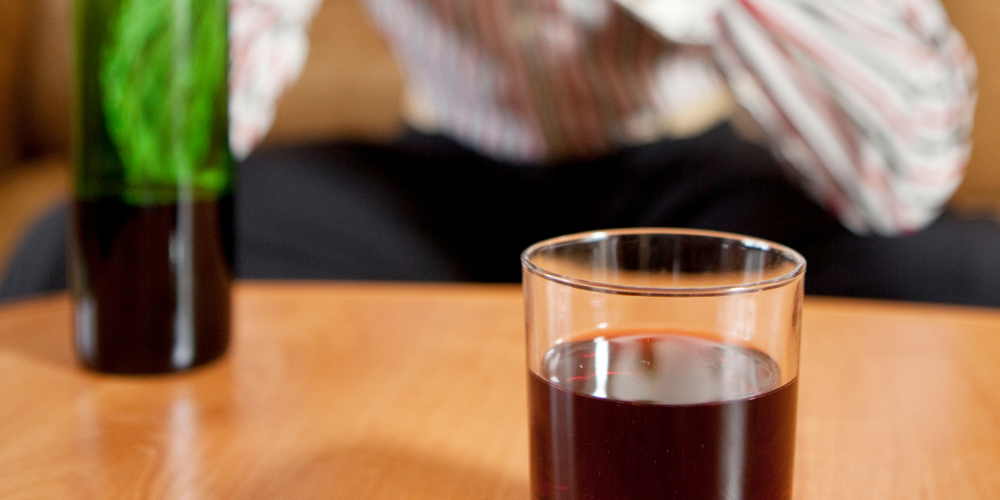Wine is often a go-to when settling in for a relaxing evening. After a long day at work, it’s the perfect finishing touch to any warm meal or a simple charcuterie board. It can even bring a feeling of normalcy when bars and restaurants are closed due to a worldwide pandemic. Not to mention, it’s been reported that a glass of wine every day can actually be good for your overall health—despite evidence-based reports that conclude the opposite. So what’s the real answer? When does a favorite pastime become a problem, though? And how many glasses of wine per week is healthy?
The idea of promoting drinking even one to two glasses of wine per day can be dangerous. For one, alcohol is considered one of the most addictive substances, and it’s highly toxic, particularly when you drink too much. According to the CDC, about 16% of the adult population in the U.S. reported binge drinking. In addition, excessive alcohol consumption was responsible for an annual average of 95,000 deaths.
Wine Popularity
In general, alcohol has always been praised as a favorite American hobby, with nearly two in three citizens consuming alcohol regularly.
Answering a question on how many glasses of wine per week is healthy can prove to be complicated. While alcohol has been linked to numerous diseases and health issues, wine is still widely viewed as an acceptable beverage for casual and even formal occasions. Its popularity has given rise to the idea that moderate drinking is not only ok, but perhaps even good for you.
What brought rise to its popularity?
Wine has only recently gained more traction in terms of being crowned the most popular beverage, which by the way, beer still holds the title. However, there is a surge in popularity for wine, more specifically among millennials, bolstered by an increase in availability and variety. According to a Wine Market Council report, in 2015, millennials accounted for 42% of all wine consumption.
According to a 2019 Gallup poll, 40% of the legal drinking population (240 million people) drink wine. Wine drinking is more common today than in the 1990s when just over a quarter of U.S. drinkers said they preferred it.
New automated processes for harvesting, fermenting, storing, and delivering wine significantly increased wine production. There are now over 10,000 wine offerings, bringing countless flavors to eager consumers.
Is Moderate Wine Drinking Healthy?
If physicians promote moderate amounts of wine, it begs the question: how many glasses of wine per week is healthy? First, let’s take a look at the assertion that wine may be beneficial to our health.
A catchphrase coined in the late 1980s regarding the French Paradox brought forth a radical idea that red wine can boost heart health. This theory, based on low heart disease rates in France, helped spur the rumor that red wine consumption would help lower instances of heart disease. Harvard-affiliate internist, Dr. Kenneth Mukamal, explains that the argument is fairly weak considering these studies are exclusively observational and only proves association rather than cause and effect. In other words, perhaps improved heart health correlates directly with the charcuterie board ingredients rather than the glass of wine you selected to compliment it.
The wine industry has undoubtedly promoted language around polyphenols found in red wine, which include resveratrol. Resveratrol is heavily advertised as a heart-friendly and anti-aging supplement. However, consumers are more likely to reap the benefits of resveratrol with daily supplements versus attempting to extract it from a bottle of wine.
Healthy Drinking Habits
Is there such a thing as healthy drinking habits? If so, how many glasses would be considered alright?
In 2006, an analysis published in Addiction Research and Theory uncovered that of 54 previously published studies, there was no correlation between moderate alcohol consumption and lower risk of heart disease.
Statistics depict the many negative consequences of booze. Alcohol kills millions worldwide each year and is responsible for countless issues ranging from economic problems to social and relationship problems. Research has found strong links between alcohol and cancer, as well. One bottle of wine per week is associated with an increased absolute lifetime cancer risk for non-smokers of 1% for men and 1.4% for women. This equates one bottle of wine to five cigarettes for men and 10 for women.
Why is Wine Linked to Good Habits?
A few studies have reported that wine drinkers tend to be better off financially, better educated, and have a less sedentary lifestyle, which could impact health among its consumers. Still, it’s not the type of alcoholic drink that affects people the most, but rather the amount of alcohol consumed.
According to the Centers for Disease Control and Prevention, a single beverage should contain 0.6 ounces (14 grams) of alcohol. Generally, this amount of alcohol, referred to as alcohol by volume or ABV, is found in:
- 12-ounces of beer (5% ABV)
- 8-ounces of malt liquor (7% ABV)
- 1.5-ounces of 80-proof (40% ABV) distilled spirits or liquor
- 5-ounces of wine (12% ABV )
Excessive drinking usually includes binge drinking, heavy drinking, and any drinking done by pregnant women or people younger than 21. The Dietary Guidelines for Americans defines moderate drinking as up to one drink per day for women and up to two drinks per day for men. So, how many glasses of wine per week is healthy? If living with these defined standards, it should not exceed roughly a bottle of wine per week.
Health Risks of Wine Consumption
Like any other alcoholic beverage, wine is a risky habit to partake in simply because of its alcohol content, toxicity levels, and potential for abuse. Whether or not you’re suffering from alcohol use disorder, wine consumption is still problematic when it becomes excessive.
Wine is a comforting, delicious drink to have at the end of the day. In addition, wine drinkers tend to consume more when they’re feeling stressed or anxious, especially during times of uncertainty. In fact, the coronavirus pandemic has American’s drinking more due to stay-at-home orders. You should be aware of a few things when it comes to health risks as they revolve around alcohol consumption.
Negative Impact of Drinking Wine
Excessive alcohol is well-known for liver damage and various forms of cancer, including liver, breast, and colon cancer. Avoiding the daily splurge on rosé and cabernet sauvignon can help reduce the risk of some serious health complications.
“People with a history of substance use disorders, anxiety or depression, or any other mental health concern, should be especially wary of turning to alcohol to handle stress.” – Dr. Victor Karpyak, a Mayo Clinic Psychiatrist
It can be tempting to reach for a glass of wine during a time of extreme emotions in an attempt to find relief. However, alcohol does not solve underlying mental health issues but rather temporarily dampens things like anxiety and depression. Stress is also a major trigger for overconsumption of wine. Remember limits and calculating how many glasses of wine per week is healthy.
Overall health impacts to consider:
There are numerous adverse effects on the body and mind, both physically and mentally, caused directly by too much alcohol. Here are a few among the list of risks and behaviors that many suffering from alcohol use disorder (AUD) or alcohol issues may experience:
Physical Health
- Alcohol may contribute or cause damage to the liver. Due to the overworking of liver functions, particularly when binge drinking, liver cells may begin to die, and the replacement scar tissue can lead to a serious condition called cirrhosis.
- Alcohol negatively impacts the brain as ethanol reduces communication between brain cells. Binge drinking may also cause blackouts, and long-term or chronic alcohol abuse may increase the risk of dementia and cause brain shrinkage in middle-aged and older adults.
- Heart disease is a leading cause of death in America. Heavy drinking increases the risk of heart disease, especially among long-term users.
- Alcohol consumption has been linked to cancers of the mouth, throat, colon, breast, and liver. Even light alcohol consumption is connected to a 20% increased risk of mouth and throat cancer.
Mental Health
- Alcohol intake and depression are closely linked, but the relationships are still incredibly complex—many people facing anxiety and depression drink intentionally to reduce stress and improve overall mood. However, temporary relief only seems to worsen mental health sparking a vicious cycle commonly viewed as substance use disorder.
- One of the main predictors for having a substance use disorder such as AUD is experiencing trauma. One study found that 60% to 80% of military veterans seeking PTSD treatment also have alcohol use issues. Those with PTSD and trauma-induced mental conditions are also at higher risk of attempting suicide if they, too, are experiencing alcohol abuse.
- Many of those who consume alcohol regularly seek to relieve issues stemming from insomnia, anxiety, depression, and other mental concerns. Self-medicating is one of the leading causes of addiction.
Some people are more prone to alcohol abuse, and alcohol’s effects impact others on a broader scale. An estimated 12% of Americans are believed to have been dependent on alcohol at some point in their life. Wine normalizes addiction, so understanding how many glasses of wine per week is healthy is crucial to maintaining positive outlooks, especially when consuming alcohol regularly.
Treatment for Alcohol Use Disorder
As outlined by evidence-based studies, maintaining healthy drinking habits is a preventive step, many can take to treat alcohol use disorder before it starts. The key is to ensure that alcohol consumption is not being used to self-medicate illness, discomfort, or mental health issues. Turning to other, healthier methods of coping are vital such as:
- Getting proper sleep
- Nutrition or diet
- Daily exercise
However, the fact remains that alcohol is one of the biggest public health crises in the United States today. Alcohol abuse is the third leading lifestyle-related cause of death in America. A person who succumbs to excessive alcohol use loses 30 years of potential life.
The National Institute of Drug Abuse noted that over 23% of the admission to public treatment centers are due to alcohol abuse, the highest percentage of substance use. There are many different sources of alcohol treatment, some that are well known, such as 12-Step forms like Alcohol Anonymous, as well as inpatient stays. However, as technology develops, studies demonstrate that online addiction support can be as effective as any intensive outpatient treatment.
Online Alcohol Abuse Treatment
Eliminating stigmas and providing access to treatment and supportive addiction care, online alcohol use disorder programs prove to be a better way of helping individuals and families face alcohol addiction.
Since there’s never a one-size-fits-all approach to treatment, online programs are making it easier to tailor and adjust how individuals receive treatment from the comforts of their home. Additionally, people can still attend to outside obligations for work and family life while receiving evidence-based treatment, like that offered with AspenRidge AspenRidge Virtual Care.
AspenRidge AspenRidge Virtual Care: Online Alcohol Treatment
Now that you know how many glasses of wine per week are healthy, it might be time to ask whether you or someone you love is facing difficulty with alcohol abuse. Our addiction specialists are available 24/7 to answer any questions you may have regarding our online alcohol treatment programs and signs to look out for when it comes to problematic drinking.
AspenRidge AspenRidge Virtual Care is the newest program offering to Colorado and, soon, to other states. We offer a few programs within AspenRidge Virtual Care, including:
- 6-Week AspenRidge Virtual Care Reset
- 12-Week AspenRidge Virtual Care Intensive Outpatient Program
- 12-Week AspenRidge Virtual Care Outpatient Program
Finding proper dual diagnosis care that treats both alcohol abuse and underlying mental health concerns can make a world of difference during the journey to sobriety. At AspenRidge AspenRidge Virtual Care, we understand that providing tailored programs that fit individual needs is crucial to the success rate of any type of substance abuse treatment.
Contact us today at (720) 650-8055 to learn more about our offered support and treatment options for wine consumption issues.



















